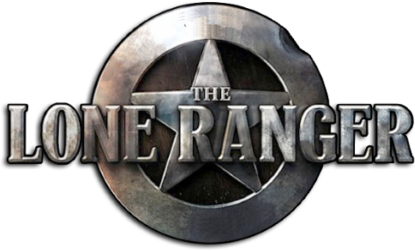(Created page with '''This article contains information from [http://en.wikipedia.org/wiki/William_Tell_Overture Wikipedia]. The overture to the opera William Tell, especially its high-energy final...') |
No edit summary |
||
| Line 1: | Line 1: | ||
| − | ''This article contains information from [http://en.wikipedia.org/wiki/William_Tell_Overture Wikipedia]. |
+ | ''This article contains information from [http://en.wikipedia.org/wiki/William_Tell_Overture Wikipedia].'' |
The overture to the opera William Tell, especially its high-energy finale, is a very familiar work composed by Gioachino Rossini. There has been repeated use (and sometimes parody) of this overture in the popular media, most famously for being the theme music for the ''[[Lone Ranger]]'' radio and television shows, and it is quoted by Dmitri Shostakovich in his Symphony No. 15. William Tell was the last of Rossini's 39 operas, after which he went into semi-retirement, although he continued to compose cantatas, sacred music, and secular vocal music. |
The overture to the opera William Tell, especially its high-energy finale, is a very familiar work composed by Gioachino Rossini. There has been repeated use (and sometimes parody) of this overture in the popular media, most famously for being the theme music for the ''[[Lone Ranger]]'' radio and television shows, and it is quoted by Dmitri Shostakovich in his Symphony No. 15. William Tell was the last of Rossini's 39 operas, after which he went into semi-retirement, although he continued to compose cantatas, sacred music, and secular vocal music. |
||
| Line 10: | Line 10: | ||
*Finale - ultra-dynamic "cavalry charge" galop heralded by trumpets and played by full orchestra (this segment is often used in popular media to denote galloping horses and became the ''Lone Ranger'' theme music) |
*Finale - ultra-dynamic "cavalry charge" galop heralded by trumpets and played by full orchestra (this segment is often used in popular media to denote galloping horses and became the ''Lone Ranger'' theme music) |
||
| − | ''Lone Ranger'' producers [[James Jewell]] and [[George W. Trendle]] decided upon the ''William Tell Overture'' largely due to it being in the public domain. |
+ | ''Lone Ranger'' producers [[James Jewell]] and [[George W. Trendle]] decided upon the ''William Tell Overture'' largely due to it being in the public domain. That meant [[WXYZ]] wouldn't need to pay royalties for it's use. That is also why ''Flight of the Bumblebee'' was used as the theme song for ''The Green Hornet'' radio series. |
| + | |||
| + | [[Video:Lone Ranger Opening Theme|thumb|300px|right]] |
||
[[Category:Music]] |
[[Category:Music]] |
||
[[Category:Background]] |
[[Category:Background]] |
||
Revision as of 14:42, 9 August 2009
This article contains information from Wikipedia.
The overture to the opera William Tell, especially its high-energy finale, is a very familiar work composed by Gioachino Rossini. There has been repeated use (and sometimes parody) of this overture in the popular media, most famously for being the theme music for the Lone Ranger radio and television shows, and it is quoted by Dmitri Shostakovich in his Symphony No. 15. William Tell was the last of Rossini's 39 operas, after which he went into semi-retirement, although he continued to compose cantatas, sacred music, and secular vocal music.
The overture is written in four parts, each seguéing into the next:
- Prelude - a slow passage with low-pitch instruments such as cello and bass
- Storm - dynamic section played by full orchestra
- Ranz des Vaches (call to the dairy cows) - featuring the English horn (this segment is often used in animated cartoons to signify daybreak)
- Finale - ultra-dynamic "cavalry charge" galop heralded by trumpets and played by full orchestra (this segment is often used in popular media to denote galloping horses and became the Lone Ranger theme music)
Lone Ranger producers James Jewell and George W. Trendle decided upon the William Tell Overture largely due to it being in the public domain. That meant WXYZ wouldn't need to pay royalties for it's use. That is also why Flight of the Bumblebee was used as the theme song for The Green Hornet radio series.
thumb|300px|right
